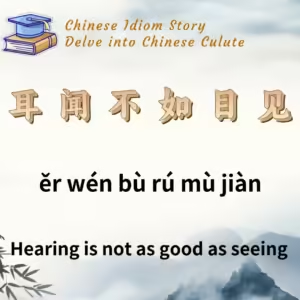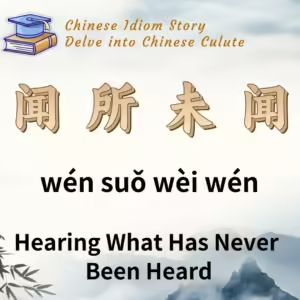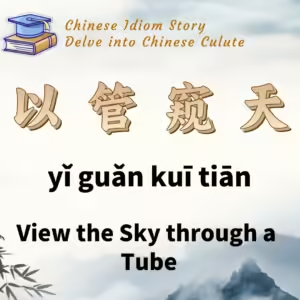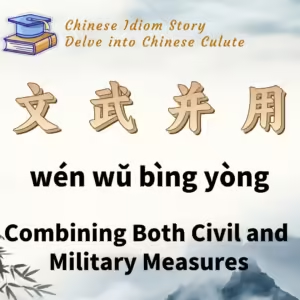
Chinese Idiom: 耳闻不如目见 (Er Wen Bu Ru Mu Jian)
English Translation: Hearing is not as good as seeing
pīn yīn: ěr wén bù rú mù jiàn
Idiom Meaning: This idiom emphasizes the importance of firsthand investigation and research over relying on hearsay or rumors.
Historical Source: Liu Xiang’s Shuoyuan (《说苑·政理》) from the Han dynasty.
Idiom Story:
During the early Warring States period, in 445 BCE, Duke Wen of Wei (also known as Wei Si) founded the State of Wei. He ruled for fifty years and was known for his effective governance, having appointed capable officials like Li Kui as prime minister and Wu Qi as a general. Duke Wen focused on practical matters, promoting agriculture and military affairs while implementing reforms that transformed Wei into a powerful state, even defeating the Qin and seizing their territory.
One year, Duke Wen sent Ximen Bao to govern the city of Ye (present-day Linzhang County in Hebei and north of Anyang in Henan). Before his departure, Duke Wen advised Ximen Bao to conduct thorough investigations and not to trust hearsay. He stated, “Hearing is not as good as seeing; seeing is not as good as approaching; approaching is not as good as handling. When a person first enters an official position, it is like stepping into a dark room; after a while, their eyes gradually adjust, and they can see clearly. Only then can they manage affairs effectively.”
In this context, “approaching” means getting closer to the situation, and “handling” means interacting with it directly. This advice underscores that, similar to how one’s vision improves in a dark room, understanding and clarity come with experience and observation.
Upon arriving in Ye, Ximen Bao immersed himself in the local community to gather firsthand information. He vigorously suppressed harmful sorceresses and corrupt landlords while encouraging the people to develop their livelihoods. As a result, he successfully improved governance in Ye and earned the support of the local populace.
This story illustrates the value of direct observation and engagement in effective governance, reinforcing the idea that seeing and experiencing situations firsthand lead to better decision-making and outcomes.






